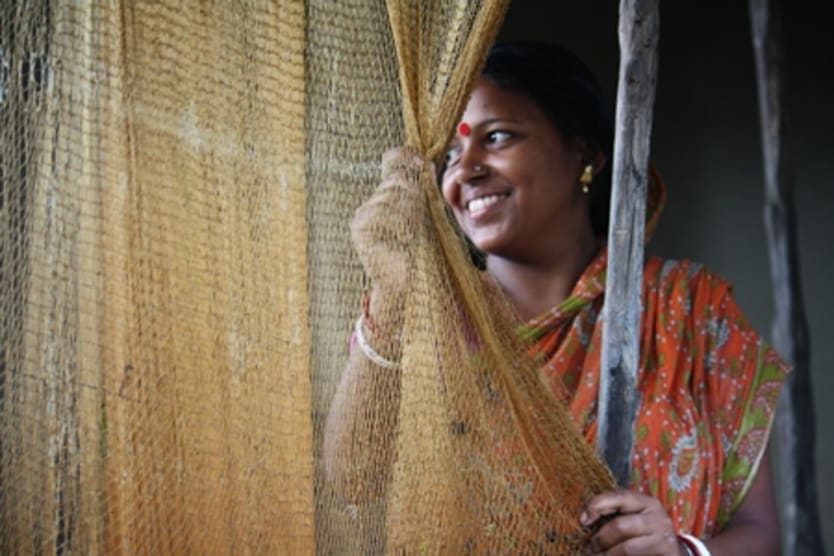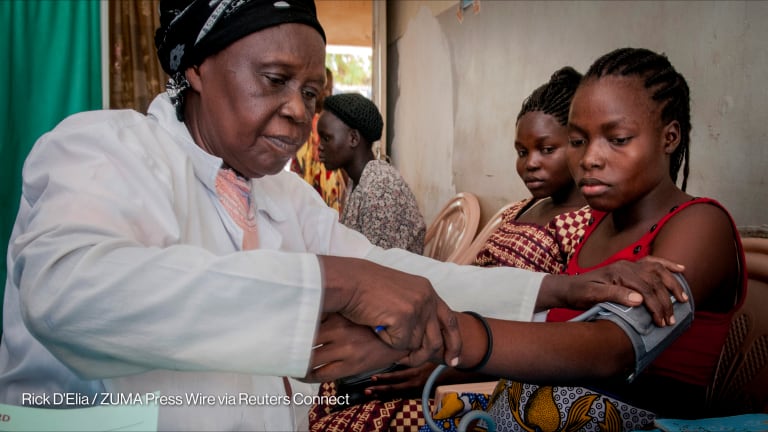
Women’s rights organizations and gender equality activists have been at the forefront of advocacy, providing a critical perspective to deepen women’s and human rights commitments, throughout the aid and development effectiveness process — from Paris, Accra to Busan. But how far have commitments to gender equality really come? And what is next, given the upcoming Fourth High Level Forum on Aid Effectiveness in Busan, Korea?
Significant progress has been made in moving from the gender-blind, highly technical Paris Declaration to the Accra Agenda for Action where gender equality and human rights (along with environmental sustainability) were named as cornerstones of development. Yet, as diverse research has found, while commitments to gender equality and human rights exist on paper, the reality is that donors and developing countries’ articulations of gender equality are often vague, lacking specific priorities to act on, well-resourced budgets, and tracking mechanisms. The lack of clear, time-bound targets and standard accountability mechanisms further reduces clarity on outcomes to be achieved, which can affect implementation. Despite some increases in official development assistance over the past few years, existing funding is not sufficient for achieving gender equality goals. The disconnect between commitments, financing, and implementation when it comes to mainstreaming gender and fulfilling women’s rights requires immediate action.
Women’s organizations and gender equality advocates are taking their collective demands and proposals to Busan. Their aim at the HLF4 is to advocate for an outcome document that proposes a truly just, multistakeholder, development effectiveness architecture, which is inclusive and sustainable based on human and women’s rights. These demands have broad and wide-reaching support and came out of a longer-term consultative process between diverse women’s organizations and CSO networks, such as Better Aid.
If gender equality is to be taken seriously as a matter of social justice and a cornerstone of development, then the outcome document produced at Busan must be clear and specific on the role of women’s rights and gender equality. It also must align with commitments made in the Accra Agenda for Action. This means that all donors and governments must:
Reassert that the full realization of women’s rights as human rights is central to any development cooperation framework moving forward. Women’s empowerment should not be instrumentalized for economic growth, but rather advanced based on universal commitments to human rights. Human and women’s rights are essential to addressing the root causes of poverty, inequalities, and discrimination. Poverty alleviation and economic development strategies must go beyond models based on unsustainable patterns of consumption and production, privatization of public systems, and exploitation of unequal gender and social relations.
Prioritize gender equality commitments through binding, concrete, time-bound targets and dedicating adequate resources for their realization. This means that not only should donors and all governments fund gender equality priorities as a mainstreamed issue within all development sectors, but they should also be giving dedicated gender equality and women’s rights funding as a stand-alone budget line (twin-track approach).
Commit to increased budgets of flexible, multiyear core funding for women’s rights organizations. Mechanisms should be in place to ensure that funding is predictable and reaches diverse women’s and feminist organizations and movements at the grassroots, national, regional, and international levels.
Create and institutionalize reliable sex-disaggregated monitoring systems with the ability to track the amount and type of support to gender equality through ODA and its results. This means that all governments should ensure that public financial management systems are gender-responsive and rigorous in their tracking of expenditures to achieve gender equality and fulfill women’s rights. This will promote predictable and transparent aid delivery, allowing for clearer articulation of priorities in country budgets and national plans.
Agree on monitoring and accountability systems that move beyond current output measurements (aid delivered) to track development outcomes (results). Monitoring systems should draw on and strengthen existing country or regionally relevant indicators and accountability mechanisms, such as the Millennium Development Goal targets and indicators, International Conference on Population and Development, CEDAW reporting requirements, reporting on the Beijing Platform for Action, and other international mechanisms, such as the Human Rights Council universal periodic review.
Ensure that gender equality indicators are mandatory for all governments moving forward, e.g., the current optional module on gender equality and aid effectiveness, developed by the Development Assistance Committee’s Network on Gender Equality. All aid should be tracked with the DAC gender equality marker.
Agree to move the primary space for standard-setting on development cooperation from the Organization for Economic Cooperation and Development to the United Nations to facilitate more equal participation and democratic ownership of all countries. The U.N. Development Cooperation Forum should be strengthened to play this role, ensuring clear, effective and ongoing mechanisms for CSO participation. It is the only legitimate, multistakeholder space, where donors, developing country governments, and civil society organizations, including women’s organizations, can participate equitably.
These are the fundamental shifts in the aid and development cooperation architecture that gender equality advocates and organizations will be pressing for at Busan. In order to advance women’s rights within HLF4, a two-day International Women’s Forum is being hosted during the Busan Global Civil Forum. The event is being co-organized by the Asia Pacific Forum on Women, Law and Development, the Association for Women’s Rights in Development, Coordinadora de la Mujer, the African Women’s Development and Communication Network, and WIDE Network.
HLF4 has the potential to be a touchstone and turning point where governments move beyond the technical focus on aid delivery and effectiveness to an inclusive, rights-based architecture that recognizes aid distribution as a political process that has a profound impact on women’s and men’s lives. These discussions will touch upon the core, shared values that international development rests upon – the vision to create a just, equitable, sustainable and peaceful world. The challenge for all donors and governments will be to more closely align the commitments they have already made to human rights and women’s rights with strong practices, financing, and accountability in the aid and development effectiveness process.








